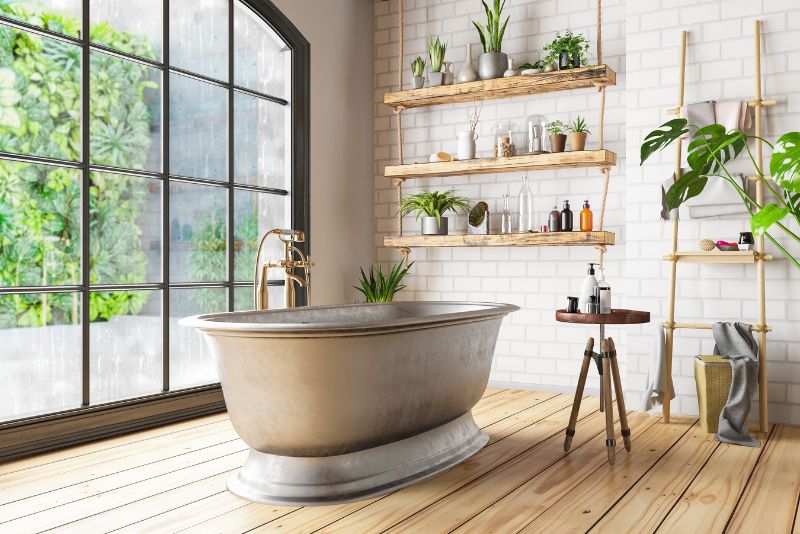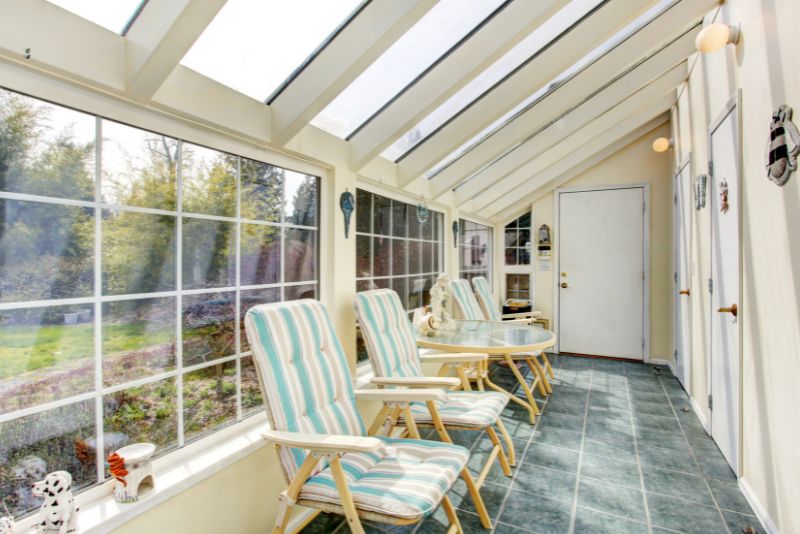It’s been a strange couple of years for the housing market. During the pandemic, our homes became our sanctuaries, schools, and places of work. Construction was one of the few trades permitted to work during the lockdowns so many homeowners embarked on renovations to make their homes their everything. Stamp duty was paused seeing house prices shoot up, and demand for those moving out of city centres increased.
As our strange landscape now continues with the cost-of-living crisis, there is ongoing uncertainty of whether to renovate, or even move. The Office of National Statistics reports that monthly mortgage repayments for an average semi-detached house have shot up by 61% resulting in dipping property prices. Those who have recently completed renovations could be forgiven for wondering whether the investment was worth it. Those planning renovations may be wondering whether they are still worth doing. Would you even get your money back in today’s housing market?
It’s all about perspective.
Long or short-term home ownership is key
If you are planning to move within the next few months or even a couple of years, renovations need more consideration. If you love your home and are planning to remain there for the long term, then it’s an easier decision to make.
A home needs to be seen as a long-term investment in terms of profitability, but it’s not just time and renovations that increase the value of a home, it’s a combination of elements including the street value (i.e. making sure you don’t spend more on the renovation than the house will ever be worth), the type of renovations carried out and even making sure you have all the paperwork in terms of Planning Permission and Building Regs.
If you know you are going to remain in your home for quite some time, or it’s your ‘forever home’ and you can afford to do it, go for it. If you like where you live, it’s important that your home fits your lifestyle, whether that’s to install a home gym, turn your attic or garage into an extra bedroom, or expand your kitchen.
However, if you have thoughts of moving on at some point, with a dipping property market, it would be sensible to consider maintaining the value of your home, as opposed to significantly increasing the value.
But even if you throw caution to the wind and customise your castle to suit your quirky needs perfectly, it’s worth knowing whether there are some renovations that may need to be reverted should you elect to sell later, and it may be worth building those costs into your overall budget.
What renovations add value to a home?

- A new kitchen – opt for a high-end finish such as quartz worktops and energy saving appliances to stand the test of time.
- Updated bathrooms – consider a power shower plus a bath, and even underfloor heating.
- Moving a bathroom upstairs – many older properties still have a downstairs bathroom, but it can be worth moving this upstairs or installing ensuites in bedrooms instead.
- New flooring – outdated styles and threadbare carpets should be replaced. Consider wooden flooring or natural stone in heavy traffic areas as they can last a lifetime.
- Freshly redecorated – skim artex, repair damage and freshen up your paint.
- Basement conversions – if you are planning to install a media room or extra bedroom in your basement, the extra usable space could later add value.
- New boiler – if your boiler is over 15 years old, it’s time to switch to a more energy efficient one.
- Garage conversion – these days we are more likely to require a home-working space or an open-plan kitchen diner than parking a car in a garage. If you need the space, renovate.
- Built–in storage – whether it’s a storage bench, cupboard doors under the stairs or a built-in wardrobe, the value of storage cannot be underestimated.
- Energy efficiency – enjoy some energy savings while you’re there, whether it’s new double glazing, solar power, or a new boiler. The good news is that even mortgage lenders want to review an EPC rating these days.
What renovations detract value from a home?
While we’re all for renovating your home for your own enjoyment, if you are planning to sell it, be aware of these common renovations which can detract from the value of a home.
- Illegal improvements – renovations without the correct planning approvals can lower the value of a home or even make it unsellable. Always obtain the right consent.
- Over-improvements of a kitchen or bathroom – a sympathetically modernised kitchen or bathroom goes a long way, but if these rooms are elaborately decorative, it can be jarring against the rest of the property and highlight what still needs doing.
- Partial refurbs – new tiling and worksurfaces around outdated kitchen appliances won’t cut the mustard.
- DIY renovations – if you aren’t an expert, it’s better to employ someone who is.
- Quirky décor – bold wallpaper prints, retro carpets, or faux grass walls aren’t for everyone.
- Swimming pools – great in warmer climates, but often viewed as a potentially costly hassle for UK homebuyers.
- Converted bedrooms – while an upstairs bathroom increases a properties salability, or you prefer to turn two bedrooms into one, you need to consider the overall value of losing a room (or the cost of reinstating it for sale).
- Poorly constructed attic bedrooms – the twin beds in the attic room may be handy for guests, but unless you have a good head height and windows and signed off by Building Regs, it is simply a storage attic in terms of resale.
- Personalised exterior – your render may need a fresh coat of paint, but stay away from the orange, purples and greens if you are intending on selling up.
- Sunrooms – cold in winter, hot in summer, and often a clutter zone for the laundry and pets. In 2023 a home office cabin could be a better option.

Remember that, although you may already know that it wouldn’t cost new buyers much to ‘make good’, the perceived cost and effort may put buyers off, particularly in the current market.
A quicker sale
If you are selling shortly after completing a renovation, you may not make quite as much as you hoped. But consider that you are more likely to secure a sale versus the competition, and less likely to have to drop your price.
The good news is that those who are currently on the market to buy a house are committed to a move, despite the current climate. With homebuyers still paying around the 5% interest rate on a new mortgage, many are more likely to spend more on a deposit to keep the monthly payments affordable. The higher monthly repayments also mean that many are unlikely to be in a position to undertake any work themselves, so a modernised property is more likely to sell, while ones that do require work remain on the market.
With spring upon us, MoveIQ reports that the number of properties listed by agents is ‘inching up’. Will they buy your home, or your neighbours?
And of course, the ones that remain on the market often see their prices drop, and ‘cheeky offers’ accepted.
Whether you’re renovating to secure a sale or settling into a long-term nest, it’s important to make sure your hard work is effectively covered via your buildings and contents insurance. Underinsurance is a growing problem in the UK, and we like to remind our clients to audit their homes and check their rebuild value regularly, to make sure they are effectively covered. Not sure where to start? We’re here to help!
Source: ONS, MoveIQ, Property Workshop

